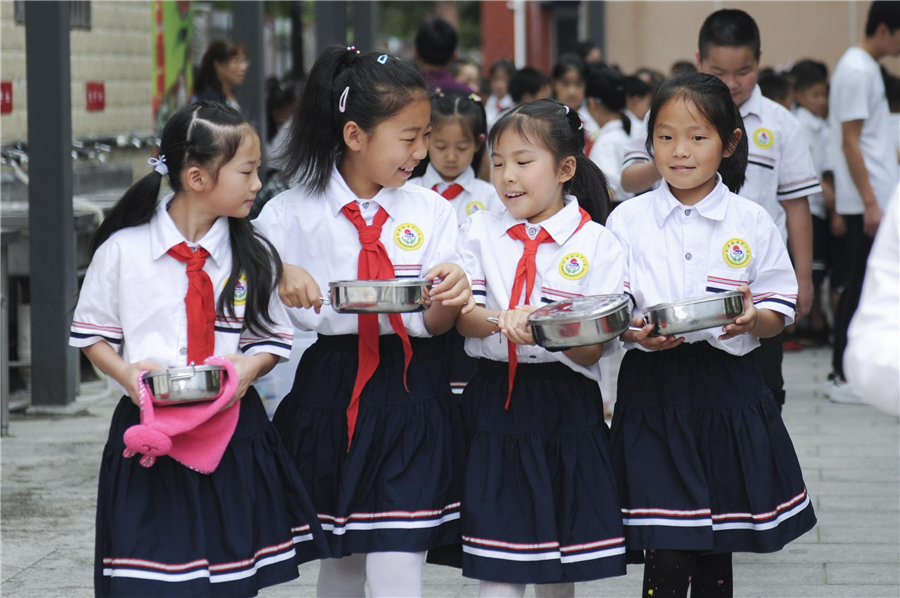Rural education anniversary celebrated


Challenges remain
Despite the progress made, there is still an imbalance in educational resources.
This is mainly evident in the county-level education system, which comprises an "experimental school" in a county seat, several smaller "central schools" in affiliated townships, and multiple teaching sites in villages.
Wang, the former researcher, said, "It is a funnel-shaped resource distribution, with smaller schools at the bottom."
Despite a call by the central government to develop rural schools, local officials tend to allocate funding and other resources to larger institutions, where the benefits are more immediate and obvious, Wang said, adding that this has consequences.
Inadequate funding for smaller schools could result in them losing students to those that are better-financed-reducing them to teaching sites, or even forcing them to close, she said.
Wealthier rural parents are sending their children to school in a county seat, raising the cost of education and jeopardizing the future for poorer students who have fewer choices of education.
According to Peking University, of the 3,363 undergraduates it enrolled in 2016, only some 700 were from rural areas, even though such students account for more than half the nation's college applicants each year.
Deng Lei, a government employee in Anhui who was awarded a Hope Scholarship in 1998, said, "The paramount problem now facing rural students is not if schooling is available, but if quality schooling is available."
Li Kexin, who runs Planting Sun, a charity program that operates activities for children aimed at augmenting rural education, said that apart from a shortage of schools, countryside areas also lag behind in the availability of libraries and other key public services to broaden children's horizons.
Lower incomes for rural residents mean that education products and services are less affordable in the countryside-if indeed they exist, she said.
Li added that with their parents working in big cities, left-behind children are usually in the care of aging grandparents, who are less capable of meeting their basic needs, such as providing food and clothing.
Zhu Lixin contributed to this story.


















